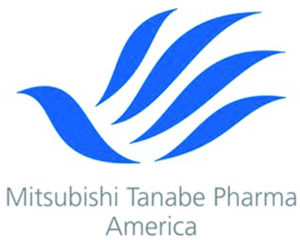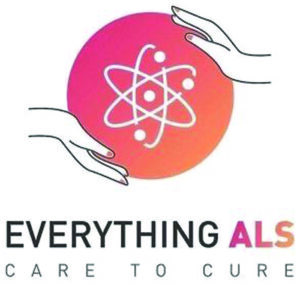ANUSH NARASIMHAN
SAN FRANCISCO, MARCH 5

 To promote accelerated development of digital biomarkers for neurological diseases like ALS – amyotrophic lateral sclerosis, Mitsubishi Tanabe Pharma Holdings America, Inc. (MTHA) has joined hands with EverythingALS.org (EALS), a patient-centric, citizen-based California non-profit accelerating the discovery of digital biomarkers for neurological diseases like ALS.
To promote accelerated development of digital biomarkers for neurological diseases like ALS – amyotrophic lateral sclerosis, Mitsubishi Tanabe Pharma Holdings America, Inc. (MTHA) has joined hands with EverythingALS.org (EALS), a patient-centric, citizen-based California non-profit accelerating the discovery of digital biomarkers for neurological diseases like ALS.
We are excited to announce this collaboration with Mitsubishi Tanabe Pharma Corporation to take this #bold step forward in joining #EverythingALS consortia.
This partnership is FIRST of its nature. It's TIME we #ENDALS! https://t.co/1CkHauQNuv
— Indu Navar (@indunavar) March 1, 2022
Biomarkers are objective, quantifiable characteristics of biological processes, such as blood pressure or heart rate, that are measurable and do not define how a person feels or functions. Digital biomarkers are collected and measured by means of digital devices, such as portables, wearables, implantables, digestibles, or even something as simple as a smartphone.
- Indu Navar, CEO and co-founder of EverythingALS, who lost her husband due to ALS in 2019, was motivated to help in the pursuit and discovery of new digital biomarkers for ALS
Amyotrophic lateral sclerosis, otherwise known as ALS or Lou Gehrig’s disease, is an incurable and fatal disease of the nervous system. Gehrig was a New York Yankees player who was diagnosed with the rare degenerative condition at 36 and died in 1941 just before his 38th birthday. An estimated 30,000 Americans are living with ALS, which causes widespread loss of muscle control as nerve cells in the brain and spinal cord are destroyed. Early symptoms range from twitching, cramps and weakness to difficulty chewing and slurred speech. Patients typically do not live more than five years after signs of the disease first appear.
EverythingALS was founded in 2020 with a focus on bringing technological innovations and data science to support efforts – from care to cure – for people with ALS. In 2021, it has tied up with Modality.ai, which has developed artificial intelligence (AI) technology to remotely spot biomarkers and assess the progression of ALS through speech and facial gestures using a virtual agent, or avatar. In a short span of time, EALS was able to rope in a team of volunteers to recruit more than 700 participants in its speech study and has produced multiple scientific publications.
Consortium partners like MTHA will help support and subsidize research conducted by EverythingALS in the discovery of digital biomarkers for ALS. Additionally, partners will have access to the insights and data generated by the ongoing research, which may help accelerate the company’s own clinical trials at a significantly faster pace than is standard for the industry. Overall, the hope is to continue furthering the development of effective treatments for this debilitating disease.
Yasutoshi Kawakami, President of MTHA said the company is excited to participate in what it thinks is a new paradigm for successful drug development by building up digital biomarkers in ALS in collaboration with the ALS community.

Indu Navar, CEO and co-founder of EverythingALS, who lost her husband due to ALS in 2019, was motivated to help in the pursuit and discovery of new digital biomarkers for ALS. Navar, who herself an entrepreneur and investor, through her network formed a professional team with direct experience with this disease and ties within the ALS community, to help support the world’s largest citizen-based, patient-centric ALS speech study.
“EALS is well positioned to transform ALS research through direct patient involvement and remote data collection,” said James Berry, an EALS Scientific Advisory Board member and Winthrop Scholar in ALS Sciences, Chief of the Division of ALS at Massachusetts General Hospital.
“The speed with which EverythingALS has been able to recruit hundreds of participants in what has become the world’s largest AI-empowered speech study of people with ALS has vastly exceeded everyone’s expectations of what can be achieved.”
In India, patients from ALS are younger at disease onset and show a longer duration of symptoms compared to patients from western countries, according to a research study. Besides genetic mutations, which have been associated with the familial and sporadic forms of ALS, environmental factors, including smoking, viral infections, and exposure to toxins, metals, solvents, pesticides, radiation, and electromagnetic fields have also been linked to the disease.
(Anush Narasimhan is a ninth-grader in Prospect High School, Saratoga, US. He is an intern at navjeevanexpress.com)










